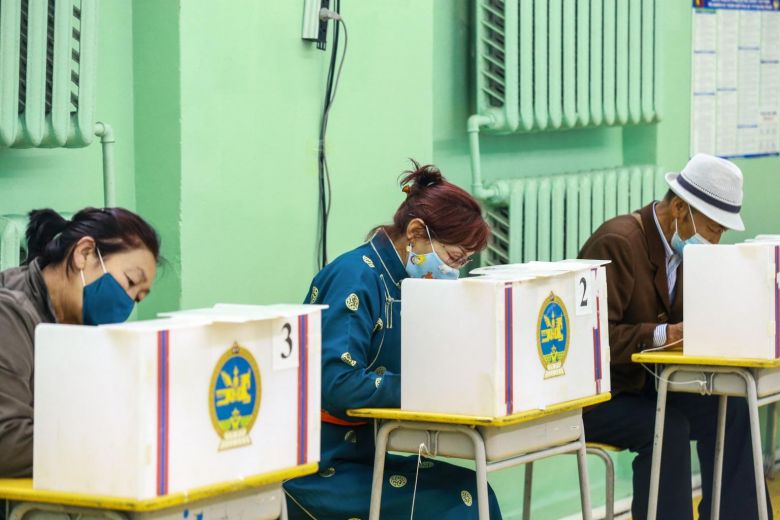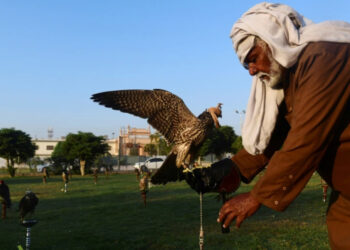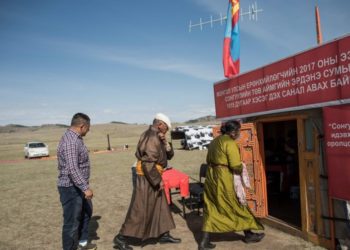Last Wednesday, Mongolia held its 8th parliamentary elections since the democratization of the country in 1990. However, these were the first ones to take place amidst a pandemic.
Notwithstanding fears among important sectors of the population and some institutions, including the president who had called for postponing the contest, almost three-quarters of the population turned out to vote with great normality.
Here are four things you need to know.
Unsurprising Landslide Victory
The post-communist Mongolian People’s Party (MPP), which had already gained a constitutional majority at the last 2016 parliamentary elections, won again by a landslide.
The party acquired 62 of the 76 seats in parliament, while the main opposition party, the liberal-conservative Democratic Party (DP), won just 11. The other three seats went to an independent candidate and two social-democratic parties. Thirteen 13 of the 76 seats went to female candidates, the highest number since the first democratic elections 30 years ago.
On the one hand, MPP’s victory was favored by the good management of the pandemic. Despite Mongolia’s proximity to China, MPP has managed to keep the number of infections low with just 219 cases, all of them coming from abroad. No one died from the virus in the country. This, in comparison with other more economically developed countries such as the US, UK, or Italy, has been considered an enormous success.
Lines are outside for this parliamentary election in Mongolia. In prior elections this station would have had people queue inside. Lines are moving reasonably quickly. Older people are being let in first here. #Сонгууль2020 pic.twitter.com/mF2VvYimrQ
— Robert Ritz (@RobertERitz) June 24, 2020
On the other hand, it was an institutionally engineered landslide too. Using its constitutional majority, MPP managed to change the electoral system and introduce a block voting system characterized by multiple non-transferable votes. This not only marginalized smaller parties as expected (11 parties and two coalitions were left without representation), but it also increased the level of electoral disproportionality, especially pushed by the high number of wasted votes: 8.5 percent, a record in democratic Mongolia.
Thus, while MPP won almost 82 percent of the seats with barely 45 percent of the votes, DP won 14.5 with almost a quarter of the votes. Perhaps the best example of such disproportionality in the distribution of seats is that the New Coalition, which came in fourth place with 5.4 percent of the votes, was left out of parliament.
Thirdly, we should not forget that the new electoral changes also discriminated against more than 150,000 Mongolian emigrants, usually more inclined to vote for the opposition, as they could not be registered in any specific constituency. In a country with just 2 million voters, emigrant voters can make a huge difference.
Finally, Prime Minister Ukhnaagiin Khürelsükh’s battle against air pollution in the capital, one of the most contaminated cities in the world, certainly paid off. By reducing the capital’s air pollution by almost half, MPP managed to solve one of the main environmental concerns in Mongolia’s electorate.
Mongolia’s Trajectory Toward a Dominant Party System
MPP’s victory of last Wednesday constitutes not only the party’s second landslide victory in the last four years but also its sixth win since 1992.
The opposition, with the Democratic Party at its head, was only able to defeat MPP in 1996, in coalition with the Mongolian Social Democratic Party, and then again in 2012.
In a world where the stakes of political competition are higher, electoral results have consequently become more uncertain and governments more difficult to predict. Mongolia constitutes one of the few current examples of what political scientists call a dominant party system.
This, like in India or South Africa before, or in Hungary now, might become problematic given dominant parties’ tendencies to blend party and state, and to appoint party officials to senior positions regardless of whether they have the required qualities. This was already visible during the last legislature and might become even more during the next four years.
COVID-19: No Impediment for Democracy
As in South Korea, this election was unique in terms of its organization. Because of the COVID-19 pandemic, social distancing had to be practiced during campaigning events. Voters had to wear gloves and/or use sanitizing facilities. The number of international observers was low, especially compared with previous electoral contests, and actual observations were limited.
This pushed some candidates to vote buying. The most imaginative example was a candidate in the Dundgovi province in Southern Mongolia, who wanted to distribute motorcycles among those who voted for him. Fortunately, the police intervened and stopped the attempt.

Worried COVID-19 might affect the affluence of voters, various civil society groups campaigned to increase participation. One example was that of the NGO Zorig Foundation, which, to mobilize the youth vote, encouraged voters to wear traditional clothes when voting to make the act of voting more sociable and look cooler. Paradoxically, this might also have mobilized older voters, nostalgic of traditional clothing and “voting” during Communist times, when people would vote covered in a deel, a traditional piece of clothing worn by nomadic tribes since the Mongols.
The result could not have been better. Almost 74 percent of voters participated in the elections. This is the highest turnout in a decade and breaks the declining trend that began with the new century.
Some Steps Back, Some Steps Forward
One of the elections’ most worrying events was the arrests of five opposition candidates (three of them DP members) without proper legal guarantees. A sixth candidate, this time an MP from the governing party, was also illegally detained accused of a conflict of interest. This, together with the concerns on MPP’s dominance over the political process, raises concerns about the quality of democracy in Mongolia.
On the other hand, however, Mongolian democracy seems firmly consolidated.
First of all, the Central Electoral Commission’s management of the contest was almost exemplary, especially given the COVID-19 pandemic.
Secondly, these elections saw an important generational change in Mongolian politics after 32 energetic, well-educated, and young candidates managed to obtain representation.
Finally, DP’s leader immediately accepted the crushing defeat and announced his resignation. It is definitively a good sign that intra-party democracy also works in the country. This is extremely important, especially given Mongolia’s exceptional position as the only fully democratic state in the region.
Disclaimer: The views and opinions expressed here are those of the author and do not necessarily reflect the editorial position of The Globe Post.



















